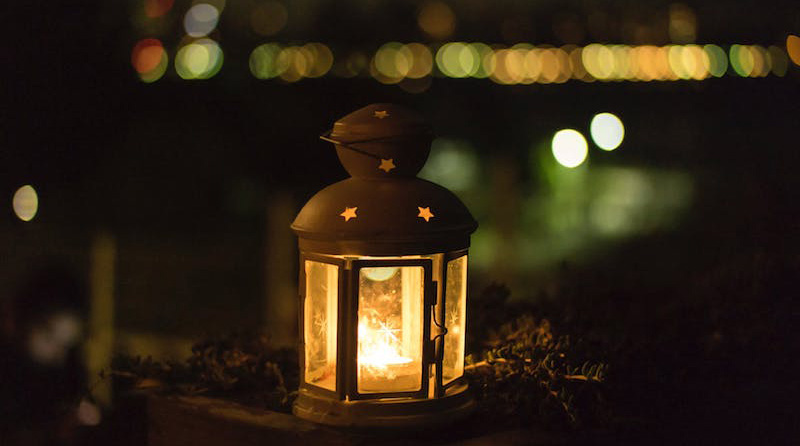The holy month of Ramadan has a life its own, shifting the mundane everyday life to a more spiritual and meaningful one – with a vocabulary of its own.
There are a lot of words to know about the holy month to understand it better, especially in Qatar.
Let’s start with Ramadan: The holy month of Ramadan is when Muslims across the world fast completely during the daylight hours of each day until the maghrib (sunset) prayer, refraining from food and drink, as well as intimate contact, smoking and other vices. Ramadan is the ninth month of the Islamic calendar. The Holy Quran was first revealed to Prophet Muhammad during the holy month of Ramadan on a night known as Laylat Al Qadr (The Night of Destiny or Power). In addition, fasting during Ramadan is the fourth of the five pillars of Islam, meaning it’s an obligation for Muslims.
Don’t forget to wish those who observe Ramadan a Ramadan Mubarak or Ramadan Kareem!
Sawm (or siyam) is the Arabic word for fasting. Every able Muslim is required to fast with the exception of the elderly, the sick (cancer, diabetes, transplant recipient) and infirm, pregnant and nursing mothers, and travellers. In addition, children are not obligated to fast during Ramadan until they reach puberty. However, children gradually begin practising fasting around the age of seven.
Maghrib is sunset, which is when Muslims perform their fourth prayer of the day. When the maghrib call to prayer is heard, it signifies the time when Muslims can break their fast and have their first meal of the day. During Ramadan, maghrib will take place around 5:50 pm and will change to a later time throughout the holy month.
Iftar (or fatoor) is the Arabic word for breakfast, and is the first meal Muslims have when they break their fast after the maghrib prayer to call.
Suhoor Known as the pre-dawn meal, suhoor is the meal Muslims have ahead of sunrise and the fajr call to prayer, which signifies the beginning of the fast during the day.
Ghabga In Qatar and the Gulf region in general, there’s usually a late-night meal, which comes after iftar but before suhoor called ghabga. It usually takes place after 10 pm and may go on till 2 am.
Garangao Around the 14th day of Ramadan, children in Qatar and the Gulf celebrate a traditional festival called Garangao. They go from door to door in groups, dressed in traditional costumes with large bags chanting Garangao rhymes, asking for nuts, dried fruit, sweets and even money fill their bags. Some people adorn their homes with lights and other Ramadan decorations.
Salah (or salat) is prayer in Islam. As one of the five pillars of Islam, Muslims are obligated to pray five times a day. The five daily prayers include: fajr (sunrise prayer), dhuhr (noon prayer), asr (afternoon prayer), maghrib (sunset prayer), and isha (night prayer). Each prayer has a specific window of time in which it must be completed. These timings are based upon the sun.
Besides the obligatory five prayers Muslims perform on a daily basis, during Ramadan, Muslims are encouraged to perform non-obligatory, additional night prayers such as Taraweeh and Qiyam Al Liyal.
Taraweeh is derived from the Arabic word meaning ‘to rest and relax’. One of the most significant practices of Ramadan, Taraweeh is a congregational sunnah or non-obligatory prayer performed after the Isha or evening prayer every night during Ramadan. At the mosque, men and women pray Taraweeh, led by the imam, the worship leader in a mosque.
Qiyam Al Liyal (or tahajud) The second most important prayer in Ramadan is Qiyam Al Layl, which is also known as Tahajjud or the ‘night prayer’ – a voluntary prayer performed during Ramadan. Tahajjud is preferably offered after midnight but before fajr. Like the Tarawih, Qiyam Al Layl is a night prayer, but only performed on the last 10 days of Ramadan.
Zakat In addition to fasting, Muslims focus their attention on giving to charity, known as zakat. Donations are usually focused on giving to those stricken by poverty and hunger. One type of charitable giving in Islam is zakat, which is obligatory for those who are financially able. There are two types of zakat: Zakat Al Mal and Zakat Al Fitr. Zakat is an integral part of the Muslim faith and, like fasting, is one of the five pillars of Islam. It’s a duty performed on a regular basis. Zakat is not an option but a compulsory act for all Muslims and is neither charity nor a tax. Muslims pay it as an obligatory act of Ibadah, which is the Arabic word for worship, obedience and submission.
Sadaqah In addition to the compulsory payment of zakat, Muslims are encouraged in the Quran to make voluntary contributions to help the poor and needy, and for other social welfare purposes. This voluntary contribution is called sadaqah. Sadaqah or saddka is an Islamic term that means ‘voluntary charity’. This concept encompasses any act of giving out of compassion, love, friendship or generosity.
Sunnah are the traditions and practices of Prophet Muhammad (SAWS/PBUH), which Muslims follow. The sunnah is what Muslims during the Prophet’s time evidently witnessed and followed, and passed on to the next generations.
Read more on Marhaba
Author: Ola Diab
Copyright © Marhaba Information Guide. Reproduction of material from Marhaba Information Guide’s book or website without written permission is strictly prohibited. Using Marhaba Information Guide’s material without authorisation constitutes as plagiarism as well as copyright infringement.





